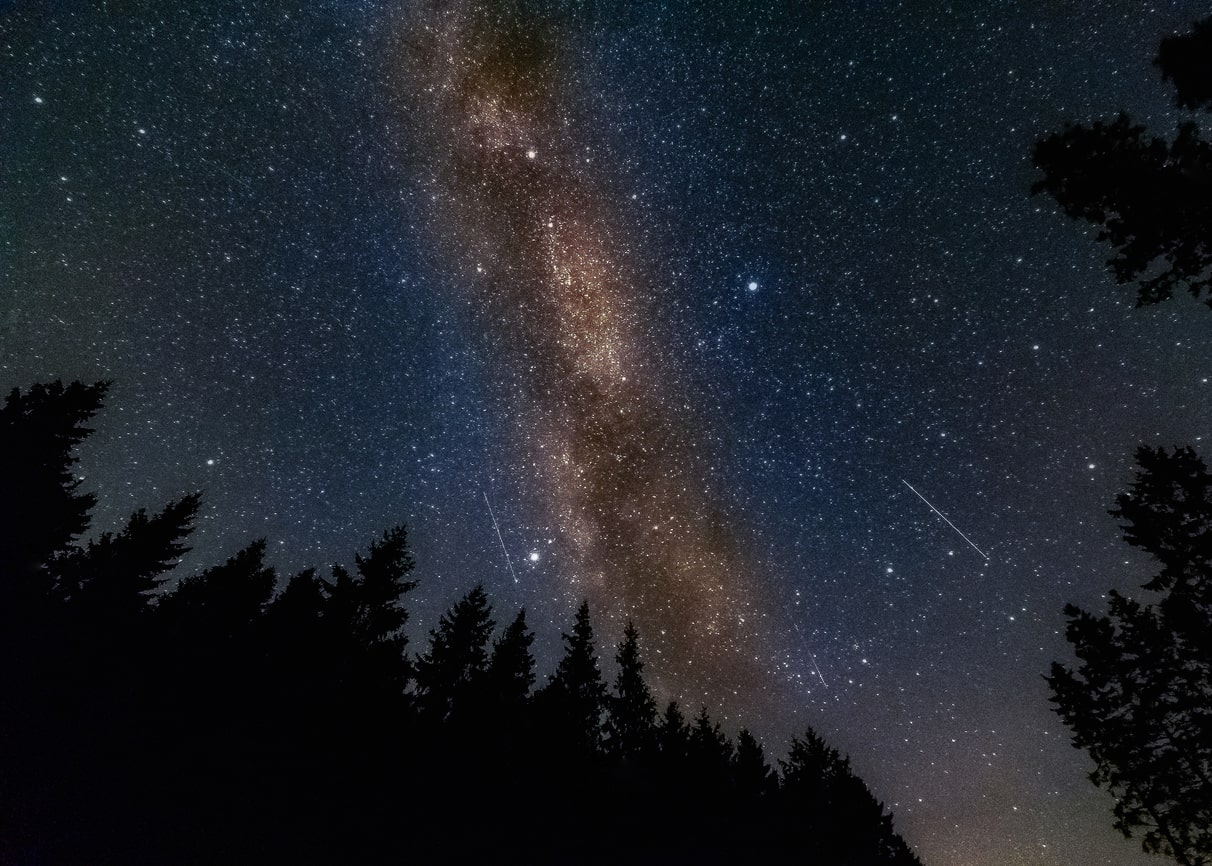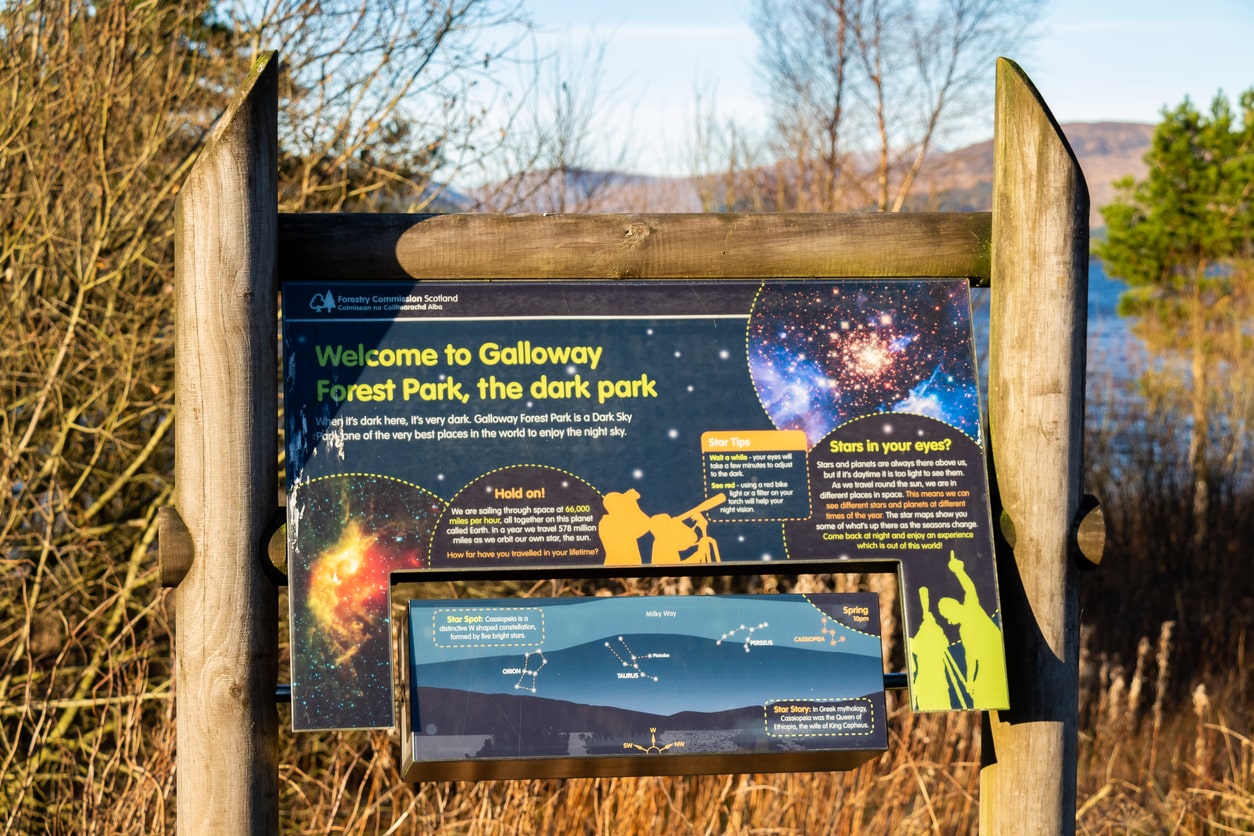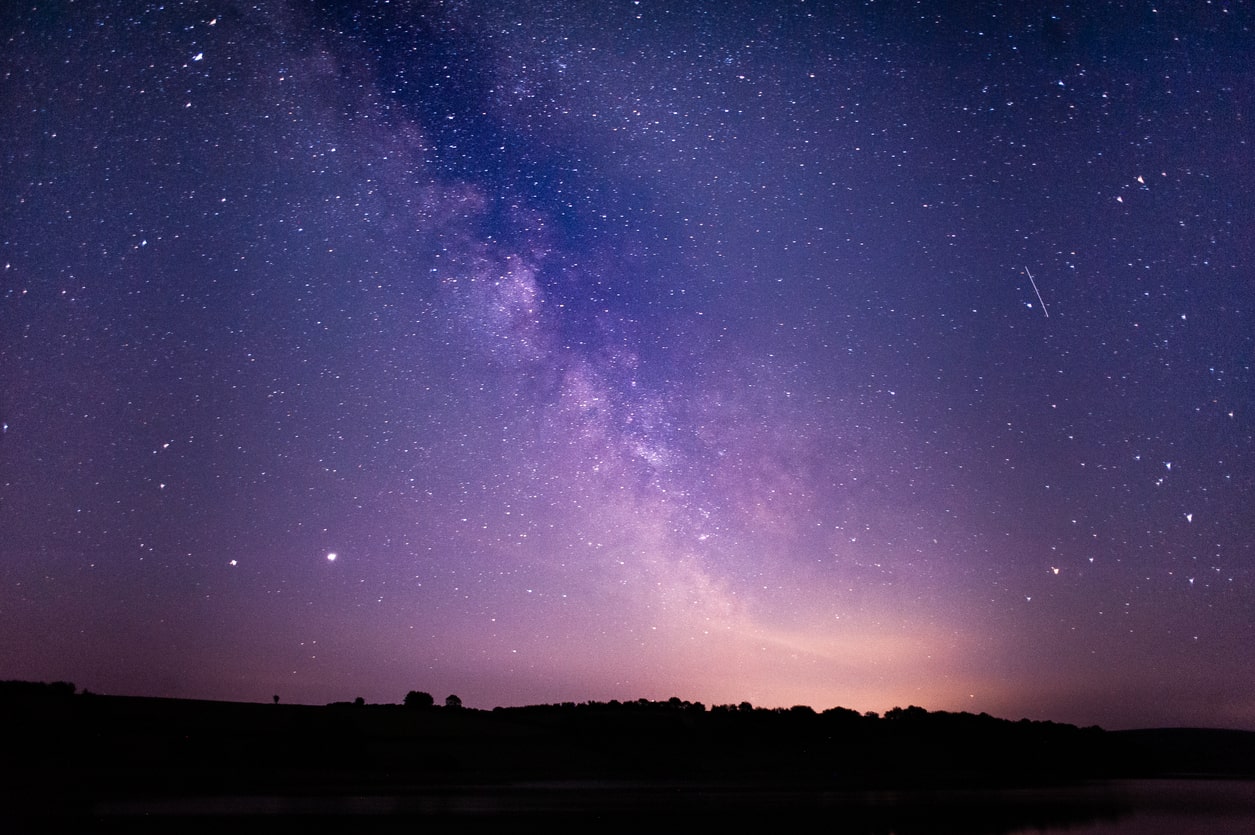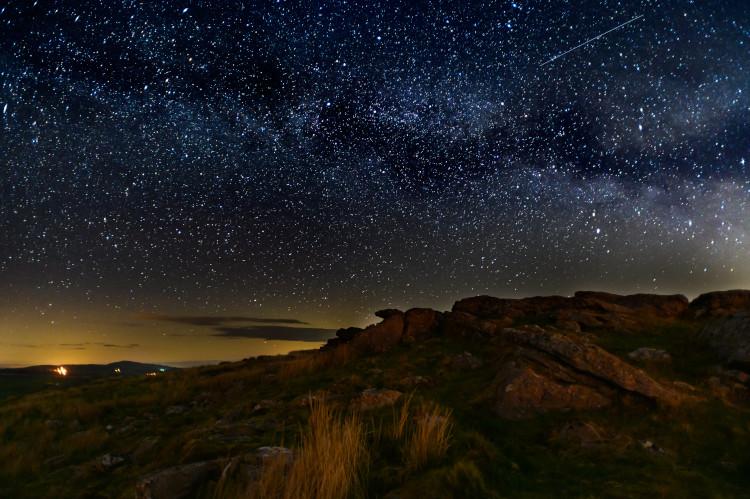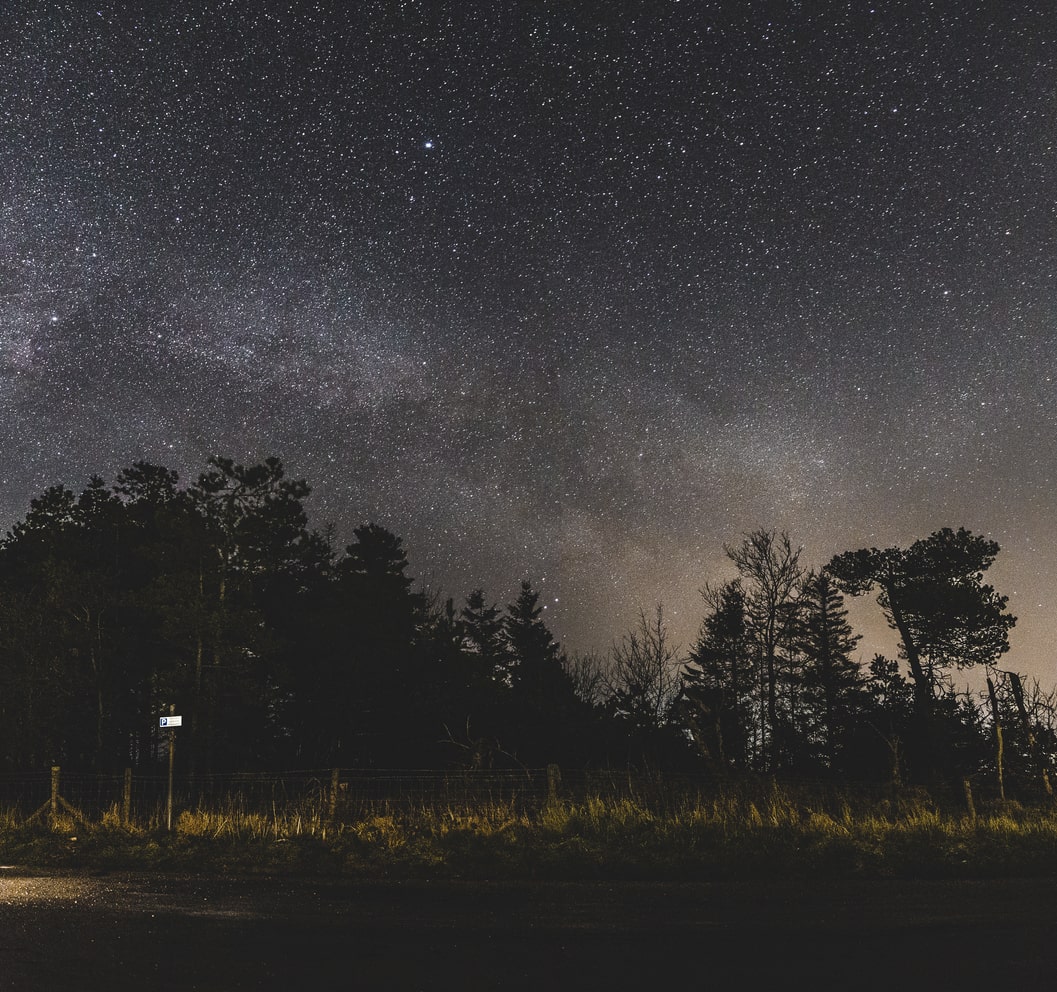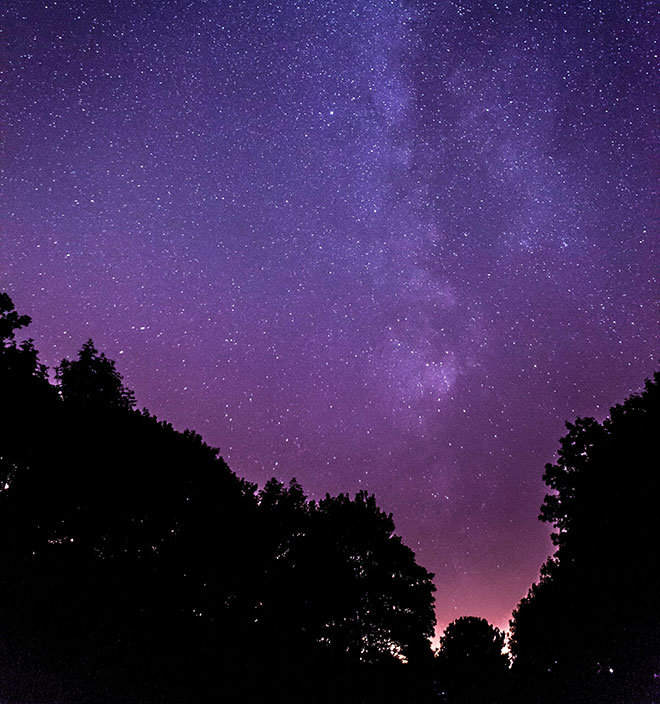
The United Kingdom is home to some of Europe’s most extraordinary stargazing locations, thanks to its network of Dark Sky Parks, Reserves, and Islands. Whether you’re a seasoned astronomer or a curious beginner, these destinations offer unforgettable views of the cosmos, from the Milky Way to meteor showers and even the elusive Northern Lights.
Why Stargaze in the UK?
Despite its population density and urban areas, the UK boasts several regions with exceptionally low light pollution. These areas have earned international recognition for their commitment to dark sky preservation, making them prime locations for observing thousands of stars with the naked eye. Many sites host regular astronomy events, offer guided experiences, and provide facilities for both amateur and professional astronomers.
Exmoor National Park
Europe’s First International Dark Sky Reserve
- What makes it special → Exmoor’s minimal light pollution allows you to see over 3,000 stars with the naked eye. The Milky Way is often visible on dark, moonless nights, and several Dark Sky Discovery Sites make it easy to find a perfect viewing spot.
- Events → Annual Dark Skies Festival every October, regular guided sessions, and telescope hire from National Park Centres.
- Top tip → Visit during new moon phases for the darkest skies.
Galloway Forest Park
UK’s First Dark Sky Park
- What makes it special → With almost no local population and extremely low light pollution, Galloway offers views of more than 7,000 stars and the Milky Way arching overhead.
- Events → Dark Sky Rangers lead guided tours, using laser pens to highlight constellations and planets. Regular events at Kirroughtree Visitor Centre and Clatteringshaws Loch.
- Top tip → Book a guided tour for expert insight and stories from the cosmos.
Northumberland Dark Sky Park
Home to Kielder Observatory
- What makes it special → Covering 580 square miles, this is the second largest protected night sky area in Europe. The Kielder Observatory hosts a wide variety of stargazing events, from family-friendly sessions to deep-sky explorations.
- Events → Observatory events must be pre-booked. The nearby Kielder Skyspace art installation offers a unique twilight experience.
- Top tip → Time your visit for meteor showers or aurora forecasts for a chance to see the Northern Lights.
Brecon Beacons (Bannau Brycheiniog)
International Dark Sky Reserve
- What makes it special → Over 7,000 visible stars, with regular astronomy events and group stargazing led by Dark Sky Wales astronomers.
- Events → Group stargazing at the Brecon Beacons Observatory, with advanced telescopes and expert guidance.
- Top tip → Dress warmly and prepare for changing weather-clear nights can be chilly.
High Force, North Pennines
Darkest Skies in England
- What makes it special → The cliffs around High Force Waterfall shield observers from light pollution, creating some of the darkest skies in the UK. The dramatic waterfall adds a unique backdrop to your stargazing experience.
- Events → Stargazing suppers, guided night walks, and the annual North Pennines Stargazing Festival.
- Top tip → Attend a Star Safari for expert-led tours and practical tips on finding constellations.
South Downs National Park
International Dark Sky Reserve, Close to London
- What makes it special → Despite its proximity to London, the South Downs offers some of the darkest skies in southeast England, supporting both wildlife and stargazers.
- Events → Annual Dark Skies Festival in February, with star parties, guided walks, and family activities.
- Top tip → Try the Brighton seafront star party or guided walks at Goodwood Country Park.
Yorkshire Dales National Park
International Dark Sky Reserve
- What makes it special → Four official Dark Sky Discovery Sites, including Tan Hill Inn (the UK’s highest pub) and Hawes National Park Visitor Centre. Possible sightings of the Northern Lights during periods of high solar activity.
- Events → Stargazing events and workshops throughout the year.
- Top tip → Visit during autumn or winter for the best chance of seeing the aurora.
North York Moors National Park
International Dark Sky Reserve
- What makes it special → Panoramic views from clifftops and moorland, with three Milky Way-class Discovery Sites. Dalby Forest offers observatories and astrophotography workshop.
- Events → Guided tours, planetarium experiences, and hot drinks for chilly nights.
- Top tip → Head to Dalby Forest for facilities and expert-led sessions.
Isle of Sark
World’s First Dark Sky Island
- What makes it special → With no public street lighting and a tiny population, Sark offers exceptional darkness and clarity. The entire island is a stargazing haven, and the Sark Observatory is open to visitors.
- Events → Biannual Starfest celebrations, regular observatory sessions, and a new planetarium planned for all-weather experiences.
- Top tip → Bring a torch (preferably red light) and explore the island’s best viewing spots like La Coupée.
FAQs
High Force in the North Pennines and Galloway Forest Park are among the darkest, with minimal light pollution and exceptional sky clarity.
Yes! The Milky Way is visible from all the destinations listed above, especially on moonless nights from late summer to early spring.
No. Many sites offer naked-eye views of thousands of stars, planets, and even the Milky Way. Binoculars or telescopes enhance the experience, but aren’t essential.
The darkest skies occur from September to April. Visit during a new moon and check the weather forecast for clear skies.
Yes. Most destinations offer regular events, expert-led tours, and festivals, making them accessible for all experience levels.
Related articles

Let us know you agree to cookies
We use marketing, analytical and functional cookies as well as similar technologies to give you the best experience. Third parties, including social media platforms, often place tracking cookies on our site to show you personalised adverts outside of our website.
We store your cookie preferences for two years and you can edit your preferences via ‘manage cookies’ or through the cookie policy at the bottom of every page. For more information, please see our cookie policy.
